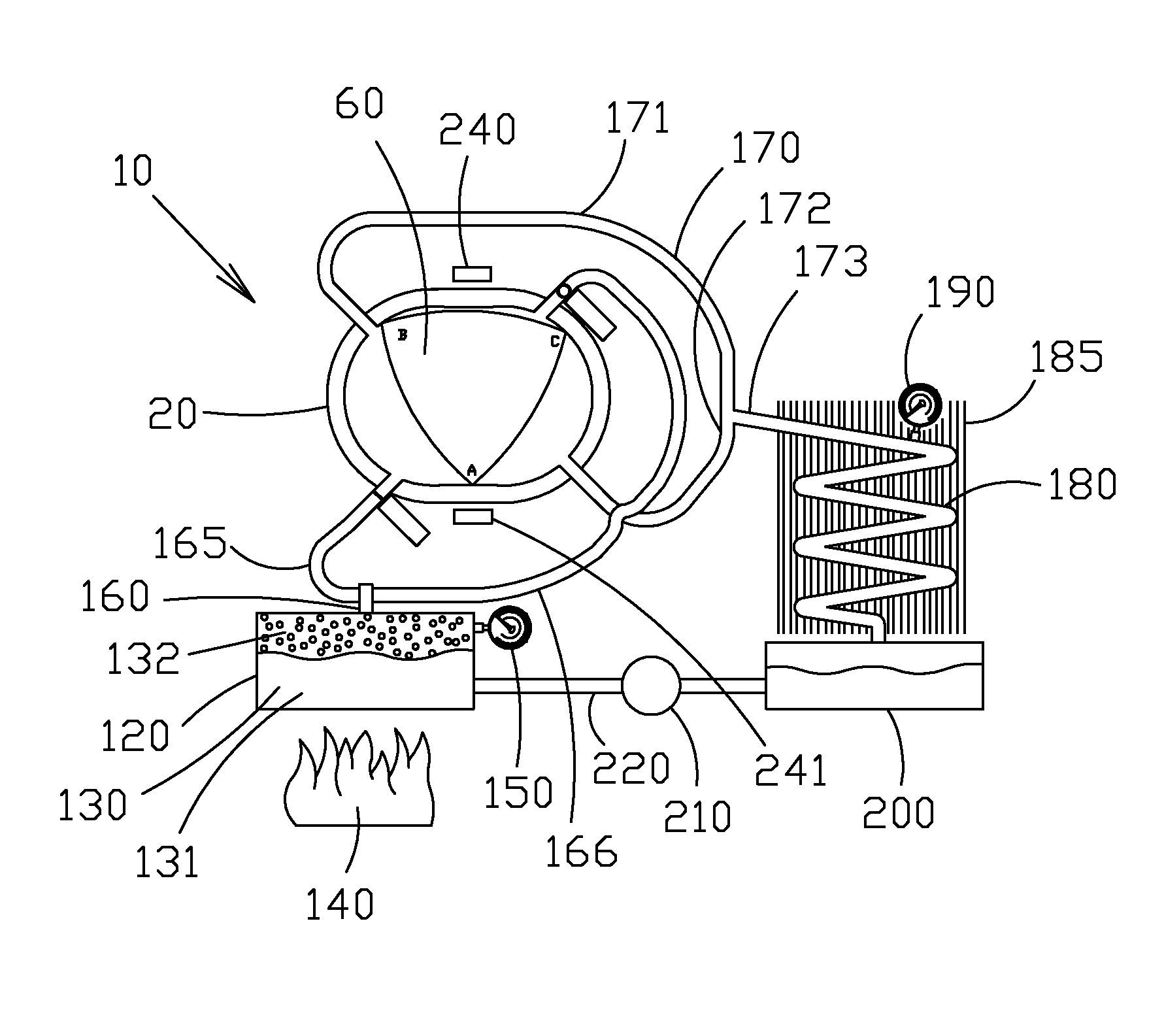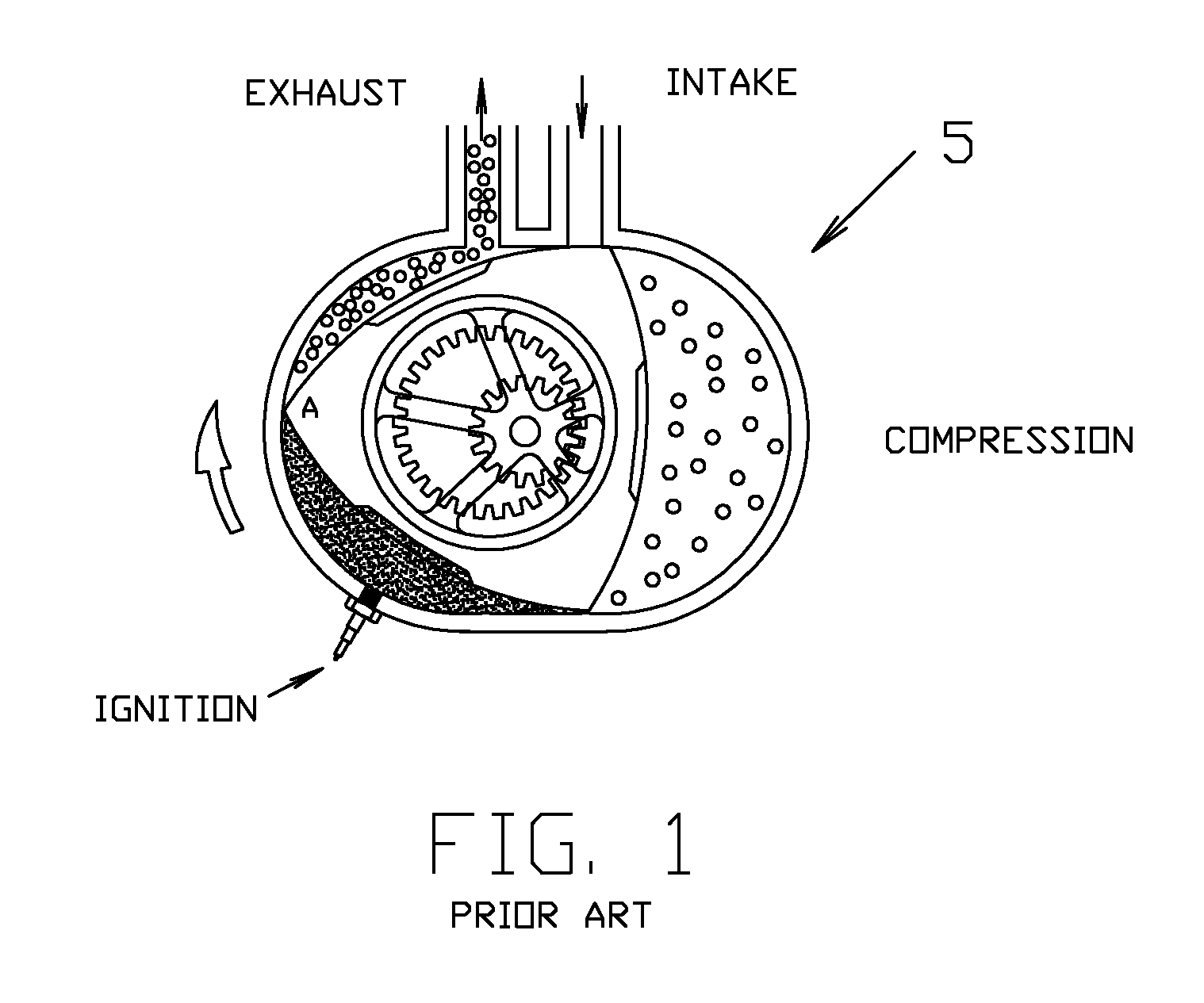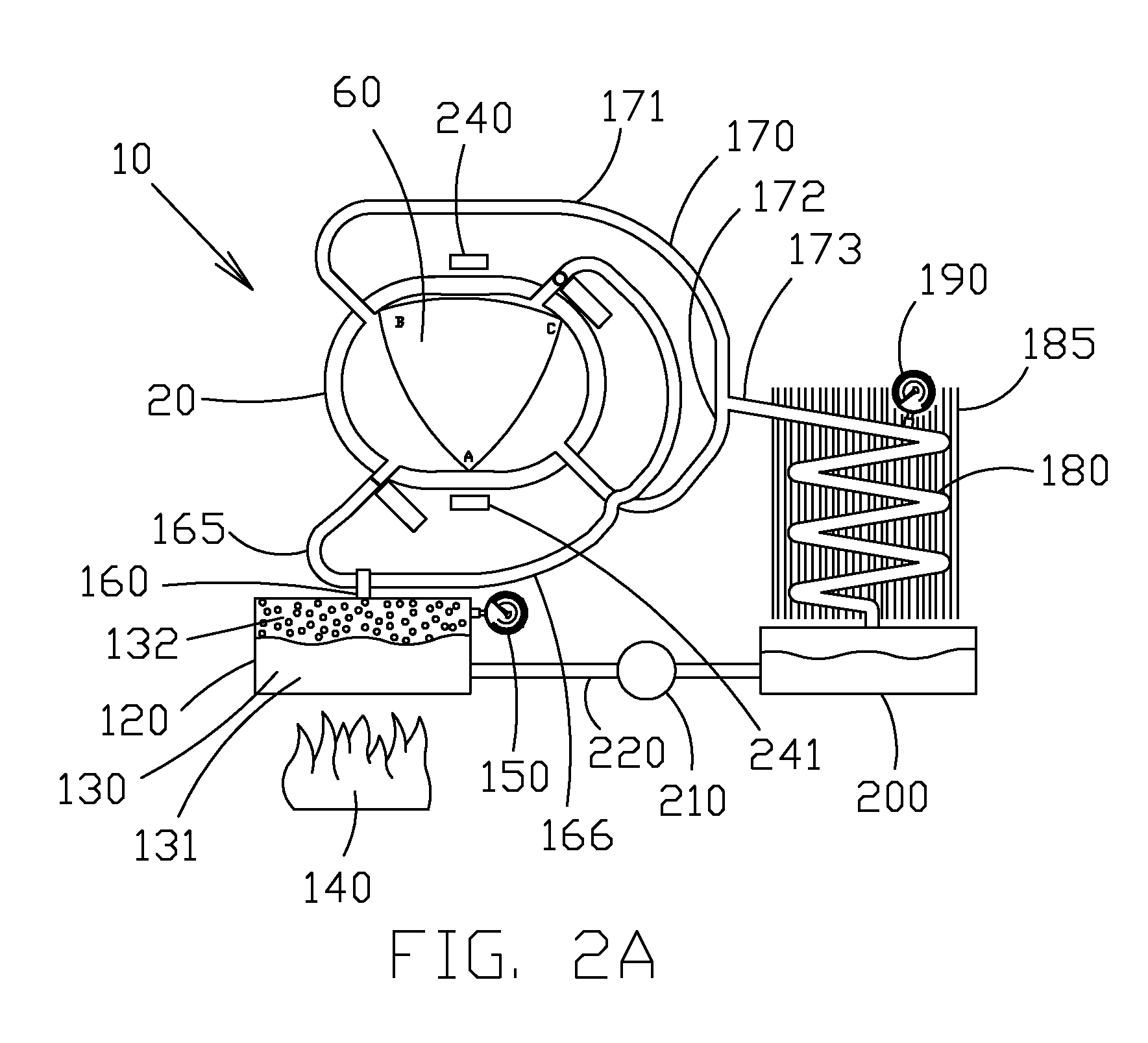Heat engine
a technology of heat engine and expansion chamber, which is applied in the direction of liquid fuel engine, machine/engine, rotary/oscillating piston pump components, etc., can solve the problems of lower combustion temperature, lower pollution production rate, and high combustion efficiency, and achieves a small expansion chamber volume and a long driving force. , the effect of minimizing the volume in each chamber
- Summary
- Abstract
- Description
- Claims
- Application Information
AI Technical Summary
Benefits of technology
Problems solved by technology
Method used
Image
Examples
Embodiment Construction
[0084]While the invention will be described in connection with one or more preferred embodiments, it will be understood that it is not intended to limit the invention to those embodiments. On the contrary, it is intended to cover all alternatives, modifications and equivalents as may be included within the spirit and scope of the invention as defined by the appended claims.
[0085]Looking now to FIG. 2A, it is seen that an engine 10 is provided having a housing 20. A rotor 60 is further provided. The rotor 60 rotates within the housing 20 as described below.
[0086]A high pressure tank 120 is provided. The tank can be any suitable size. The tank 120 can hold a selected amount of working medium 130. The working medium is preferably a commonly available refrigerant that undergoes a phase change between liquid 131 and gas 132 at predictable temperatures and pressures. One preferred refrigerant is R-123. However it is understood that other refrigerants could be used without departing from t...
PUM
 Login to View More
Login to View More Abstract
Description
Claims
Application Information
 Login to View More
Login to View More - R&D
- Intellectual Property
- Life Sciences
- Materials
- Tech Scout
- Unparalleled Data Quality
- Higher Quality Content
- 60% Fewer Hallucinations
Browse by: Latest US Patents, China's latest patents, Technical Efficacy Thesaurus, Application Domain, Technology Topic, Popular Technical Reports.
© 2025 PatSnap. All rights reserved.Legal|Privacy policy|Modern Slavery Act Transparency Statement|Sitemap|About US| Contact US: help@patsnap.com



